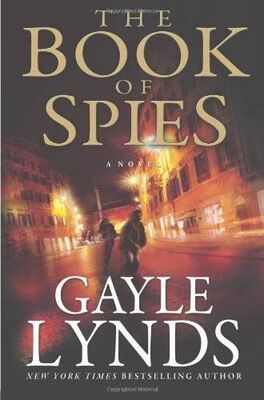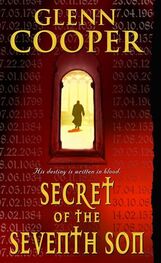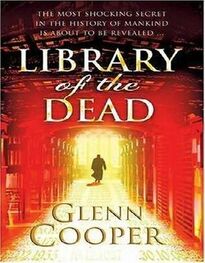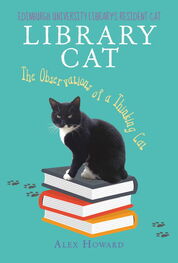If I could have my wish, the Library of Gold would exist, would be discovered, and not only would the lost books I name in the novel be found in it, but at least the work of these early six would, too:
· Sappho(c. 610 B.C. to c. 570 B.C.) was the lauded Greek poet whose life is recounted in myths based upon her lyrical and passionate love verses. The pinnacle of female accomplishment in poetry, her surviving work was collected and published in nine books sometime in the third or second century B.C., but by the eighth or nine century A.D. it was represented only by quotations in other authors’ works.
· Classical Athens had three great tragic playwrights, all contemporaries-Aeschylus (525 or 524 B.C. to 456 or 455 B.C.), Sophocles (c. 495 B.C. to 406 B.C.), and Euripides (480 B.C. to 406 B.C.). The father of modern drama, Aeschyluswrote more than eighty plays, lifting the art of tragedy with poetry and fresh theatrical power. He introduced a second actor on stage-thus giving birth to dialogue, dramatic conflict, and dramatized plot. The Athenians had the only copy of his Complete Works and loaned it for copying to Alexandria, where Ptolemy III had other ideas-he ordered it left untranscribed and not returned. Scholars flocked. Centuries passed. Then the Alexandria libraries burned, and the scrolls died in flames. Only seven of Aeschylus’s plays have survived.
· The author of 123 plays, including Oedipus Rex,Sophoclesused scenery, increased the size of the chorus, and introduced a third actor, significantly widening the scope and complexity of theater. Sophocles said he showed men as they ought to be, while his younger contemporary, Euripides, showed them as they were. Only seven of Sophocles’ plays survive.
· Dressing kings as beggars and showing women as intelligent and complex, Euripidesused traditional stories to display humanity and ethics. He wrote more than ninety plays, which were remarkable for realistically reflecting his era. Reading them would tell us much about Athens. Only eighteen survive.
· Confucius(551 B.C. to 479 B.C.) was venerated over the centuries for his wisdom and his revolutionary idea that humaneness was central to how we should treat one another. He wrote “Six Works”: The Book of Poetry, The Book of Rituals, The Book of Music, The Book of History, The Book of Changes, and The Spring and Autumn Annals , which formed a full curriculum of education. But the perfection of his vision is incomplete, since The Book of Music has disappeared.
· The first Roman emperor, Augustus(63 B.C. to A.D. 14), was one of the globe’s finest administrative geniuses, reorganizing, transforming, and enlarging the reeling Roman Republic into a powerhouse empire with easy communications, thousands of miles of paved roads, and flourishing tourism and trade. A cultured man, he supported the arts and wrote many works. Most have vanished. A particular tragedy is the loss of his thirteen-volume My Autobiography , perhaps containing the inside views of the man who over-saw and directed one of the world’s greatest civilizations during a long and critical period of history.
FOR THE LIBRARY OF GOLD
Around the Kremlin: The Moscow Kremlin, Its Monuments, and Works of Art. Moscow: Progress Publishers, 1967.
Arvedlund, Erin. “Fear Me, Giant Sewer Rodents, for I Am Vadim, Lord of the Underground!” Outside magazine, September 1997.
Backhouse, Janet. The Illuminated Page: Ten Centuries of Manuscript Painting. London: The British Library, 1993.
Basbanes, Nicholas A. A Gentle Madness: Bibliophiles, Bibliomanes, and the Eternal Passion for Books . New York: Henry Holt and Company, 1995.
“Blind Man ‘Has Key to Tsar’s Secret Library.’ ” The Times of London, September 17, 1997.
Canfora, Luciano. The Vanished Library: A Wonder of the Ancient World . Berkeley: University of California Press, 1990.
Cockburn, Andrew. “The Judas Gospel,” National Geographic , May 2006.
Ehrlich, Eugene. Veni, Vidi, Vici : Conquer Your Enemies, Impress Your Friends with Everyday Latin . New York: HarperCollins, 1995.
Grosvenor, Gilbert H. “Young Russia: Land of Unlimited Possibilities,” National Geographic , November 1914.
de Hamel, Christopher. The British Library Guide to Manuscript Illustration: History and Techniques. London: The British Library, 2001.
Hamilton, Masha. “Kremlin Tunnels: The Secret of Moscow’s Underworld,” Los Angeles Times, June 28, 1989.
Holmes, Charles W. “Unsolved Mystery: What Happened to Ivan the Terrible’s Library?” Cox News Service, October 31, 1997.
Holmes, Hannah. “Spelunking: And Please, No Flash Pictures of the Blob.” Outside magazine, March 1995.
Ilinitsky, Andrei. “Mysteries Under Moscow,” Bulletin of the Atomic Scientists , May/June 1997.
Kelly, Stuart. The Book of Lost Books. New York: Random House, 2005.
Khinsky, Nikolay. “Secret Treasures: Moscow’s Caches,” WhereRussia.com: Russian National Tourist site for International Travellers, www.WhereRussia.com, 1990s.
de Madariaga, Isabel. Ivan the Terrible . New Haven, Conn.: Yale University Press, 2005.
Panshina, Natalya. “Archaeology Expert Hopeful About Library of Ivan IV,” Tass , September 18, 1997.
Polastron, Lucien X. Books on Fire: The Destruction of Libraries Throughout History. Rochester, Vt.: Inner Traditions International, 2007.
Severy, Merle. “The Byzantine Empire: Rome of the East,” National Geographic, December 1983.
Sheldon, Rose Mary. Espionage in the Ancient World: An Annotated Bibliography. Jefferson, N.C.: McFarland & Company, Inc., 2003.
– -. Intelligence Activities in Ancient Rome. New York: Routledge, 2005.
Simpson, D. P. Cassell’s New Compact Latin Dictionary. New York: Cassell & Co., Ltd., 1963.
Stewart, Deborah Brown. Bibliographer and research services librarian, Byzantine Studies, Dumbarton Oaks Research Library and Collection, Washington, D.C. E-mail to author, August 7, 2007.
Vinogradskaya, Alexandra. “A Map of Moscow That Does Not Exist,” Russian Culture Navigator, VOR.RU, November 9, 1999.
– - . “The Mysteries of Underground Moscow,” Russian Culture Navigator, VOR.RU, April 12, 1999.
– - . “The Mystery of the Byzantine Library,” Russian Culture Navigator, VOR.RU, January 18, 1999.
Yevdokimov, Yevgeny. “Possible Whereabouts of Famous Library Revealed to Mayor,” ITAR-TASS News Agency, September 16, 1997.

***









